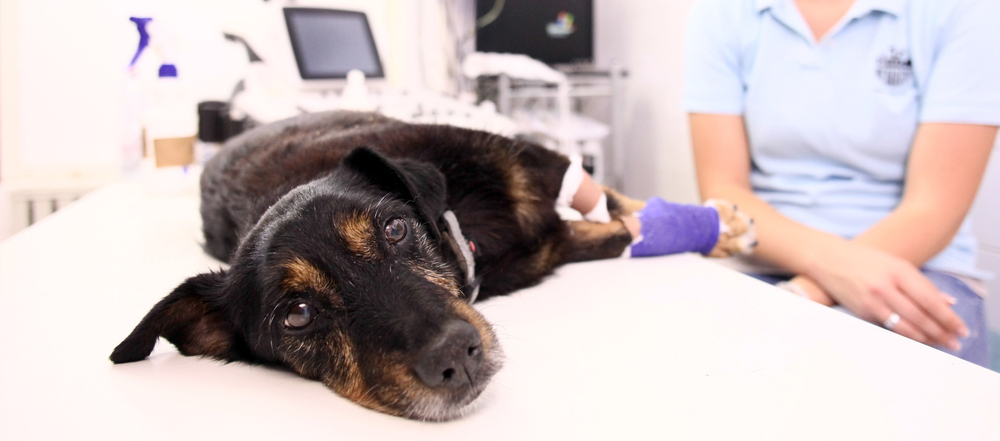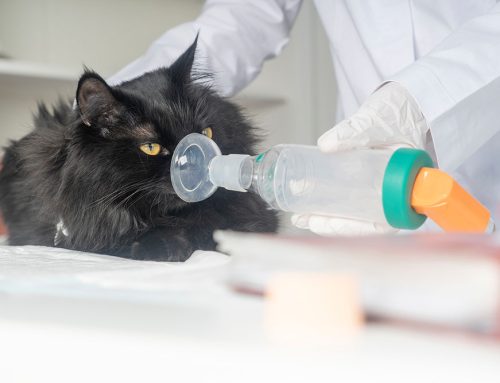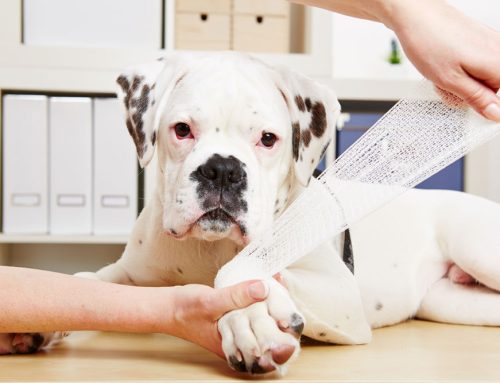Many pet injuries and accidents, such as a broken leg or being hit by a car, are easily recognized. However, some signs that a pet is experiencing an emergency are difficult to discern. Pets are hardwired to mask disease, pain, and illness to avoid predatory attacks. While this instinct is beneficial in the wild, it can cause pet owners to overlook their four-legged friends’ emergency signs. To help ensure your furry pal stays healthy and safe, our West Vets Emergency Veterinary Clinic team wants you to be able to recognize the signs your pet exhibits when they are experiencing a true emergency.
Circumstances that cause pets to experience emergencies
If your furry pal exhibits illness signs or suddenly begins behaving abnormally, you can feel both terrified and confused and so can your pet. Is it an emergency or something that can wait? Consider the following pet emergencies:
- Trauma such as being hit by a car, attacked by another pet or wildlife, or falling from a height
- Difficulty breathing
- Unexplained seizures
- Blood in vomit, stool, or urine
- Straining to eliminate
- Choking or gagging
- Persistent vomiting or diarrhea
- Restlessness or inability to sit still
- Birthing difficulties
- Bloating or distension
- Poisonous substance ingestion
- Leg fracture
- Persistent bleeding
- Heatstroke
- Pale or bluish gums
- Yowling or crying
- Incoordination
- Lameness
- Venomous snake bite
- Unconsciousness or coma
To help prevent your pet’s condition from becoming fatal, immediately contact our West Vets Emergency Veterinary Clinic team. We need to diagnose and treat your pet’s condition as quickly as possible.
Subtle emergency signs in pets
While the emergencies discussed above are apparent, some illness or injury signs are more subtle and mainly manifest as behavioral changes. Contact our team if your pet shows the following signs:
- Hiding more than usual
- Sudden aggression
- Lethargy
- Aversion to being touched or held
- Sudden clinginess
- Disinterest in play or exercise
- Inability to rest
- Vocalizing more than usual
- Excessive panting
Behavior changes are your pet’s way of expressing their feelings, so while these behavior changes may not be alarming, they should be assessed. Our team should always examine your pet if their usual behavior has changed.
What to do if your pet has an emergency
Remaining calm when your pet is injured or unwell is a challenge; however, by talking to your furry pal in a soothing voice and exhibiting composure, you help prevent your pet from becoming anxious, which can progressively worsen their condition. If your furry pal is exhibiting any of the concerning signs discussed above, immediately contact us and bring your pet to our clinic as quickly as possible. The sooner we see your pet, the greater their chances of fully recovering. If you’re unsure whether your pet is experiencing an emergency, you can describe your pet’s signs to us over the phone. When dealing with an injury, try not to move your pet too much, as this can cause further injury and pain. Apply a sterile bandage and pressure to any open wounds, and if your pet has ingested poison, such as a medication or chemical, bring the package or bottle when you come to the clinic.
Pet emergency preparedness

You should have an emergency plan in place so you are prepared to act immediately if your pet exhibits sudden life-threatening signs. During an emergency, you can easily overlook what your pet needs amid the chaos.
Learn about pet first aid through the American Red Cross, which offers several online classes. You can also download the organization’s pet first aid app for quick reference that covers many pet emergencies. A pet emergency plan can help save your pet’s life and should include creating an emergency kit that contains the following:
- Medical records
- Current medications
- Crate or carrier
- Collar and leash
- Collapsible water and food bowls
- List of nearest veterinary emergency clinics
- Contact information for West Vets Emergency Veterinary Clinic and the Pet Poison Helpline
- Pet first aid kit
- Instructions for emergency evacuations
You should also be prepared to safely evacuate your pet in case of dangerous weather, earthquakes, wildfires, and other disasters. Always keep your pet’s supplies on hand for rapid evacuation. Pack a box or bag that includes food, leashes, blankets, and other necessary items your pet may need. Know where local pet-friendly hotels are because many disaster shelters don’t allow pets.
Although a pet emergency can be frightening, by being prepared, being able to recognize the signs, and acting promptly, you can protect your pet in any scenario. Remember, if you’re in doubt about your pet’s health, always contact West Vets Emergency Veterinary Clinic for immediate care.







Leave A Comment